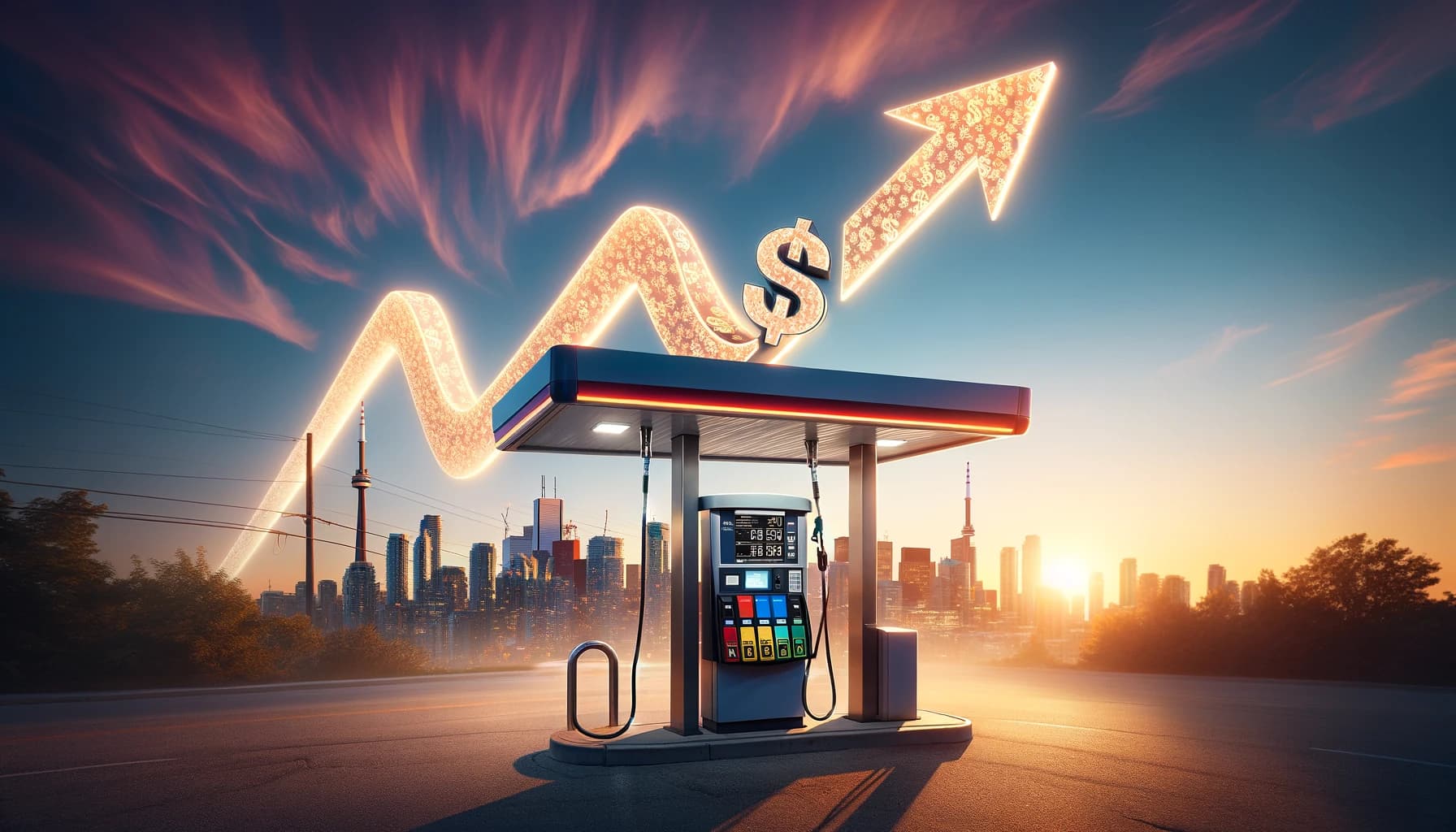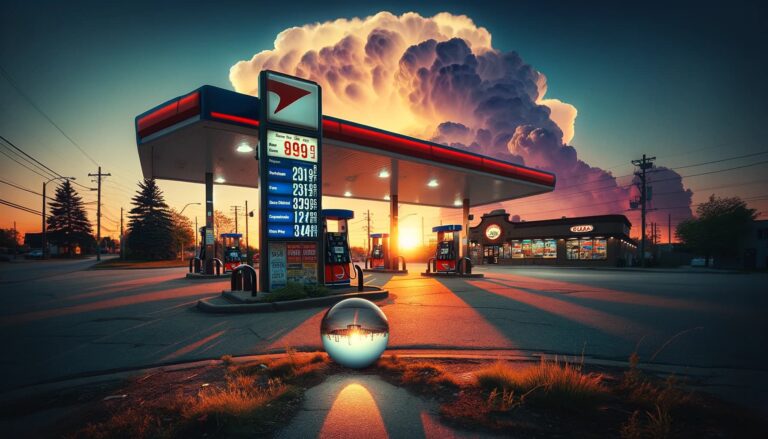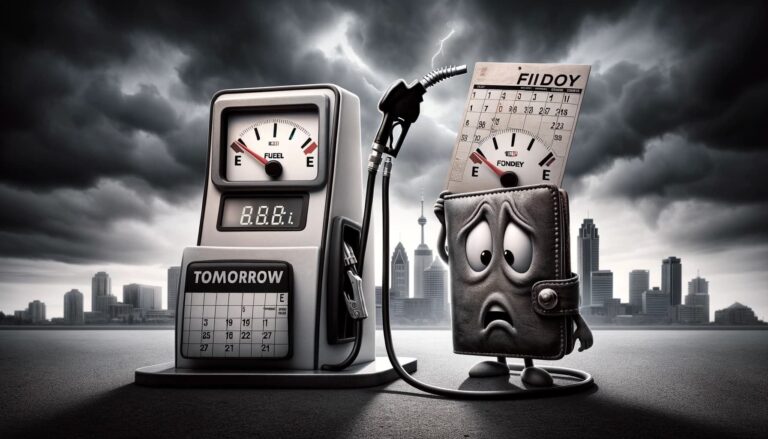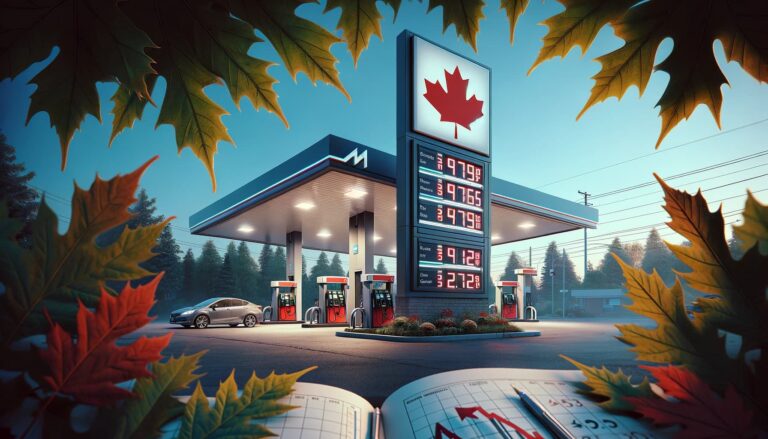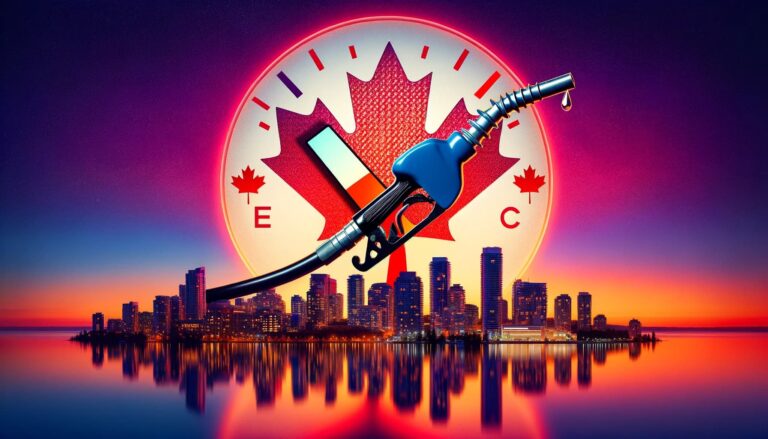Gas Price Tomorrow in Toronto, Ontario | Gas Price Near Me in Toronto
| Category | Prices |
|---|---|
| Average Price | 134.9¢ |
| Highest Price | 138.9¢ |
| Lowest Price | 132.9¢ |
Gas Price Tomorrow in Toronto, Ontario
Did you know that last year, the average gas price in Toronto saw a 20% increase from the previous year?
These fluctuations can significantly impact your expenses if you’re trying to budget for your commute or planning a road trip.
As you look ahead, comparing these prices to those in other Canadian cities or understanding the difference between natural gas, gasoline, and diesel costs in Toronto might offer you unexpected insights.
Moreover, with forecast predictions indicating potential shifts, you’ll want to stay informed to navigate the possible changes.
Let’s explore what could influence gas prices in Toronto tomorrow.
What are the historical trends in gas prices in Toronto?
Over the years, gas prices in Toronto have fluctuated significantly, reflecting broader economic trends and changes in global oil markets. You’ve likely noticed these shifts yourself, especially if you’ve been driving for a while. It’s been a rollercoaster, from the steep hikes that catch everyone off guard to the sudden drops that feel like a small win.
Historically, several factors have played into these fluctuations. Global events, like geopolitical tensions in oil-rich regions or decisions by major oil-producing countries to adjust output, often lead to sudden spikes or drops in prices. Closer to home, the Canadian dollar’s strength against the US dollar can also affect how much you’re paying at the pump, as oil is globally traded in US dollars.
Seasonal changes also play a role. You might’ve noticed prices creeping up during the summer months. This isn’t just a coincidence. Demand typically increases as more people hit the road for vacations, and refineries switch to producing summer-blend gasoline, which is more expensive but less likely to evaporate in the heat.
Understanding these trends doesn’t just give you insight into why you’re paying what you’re today. It also helps you anticipate what might happen tomorrow, making it easier to budget for your next fill-up.
How are Gas Prices in Toronto compared to other cities in Canada?
While understanding historical trends offers valuable insights, comparing gas prices in Toronto to those in other Canadian cities reveals a broader picture of the country’s fuel market dynamics.
You’ll find that Toronto’s gas prices often sit in the middle of the spectrum. Cities in Alberta, like Calgary, frequently boast lower prices due to their proximity to oil production and lower provincial taxes. On the other hand, Vancouver typically sees the highest prices in Canada, impacted by additional transit levies and environmental taxes. Montreal and Quebec City, too, experience higher prices, influenced by Quebec’s specific tax regime.
It’s not just taxes and oil production proximity affecting these differences; transportation costs to remote or less accessible areas can increase prices. So, while you might grumble about gas prices in Toronto, remember it could be pricier. However, it’s also not the cheapest place to fill your tank in Canada. This variance highlights the complex interplay of factors shaping gas prices nationwide, from tax policies to logistical challenges.
How much is the difference between the prices of Natural Gas, Gasoline, and Diesel in Toronto?
In Toronto, you’ll notice significant differences in natural gas, gasoline, and diesel prices due to various factors. These differences can significantly impact your wallet when you’re filling up your car or paying your home heating bill. Let’s break it down.
First, gasoline prices fluctuate more frequently than diesel and natural gas. This is because they’re more directly tied to crude oil prices, which can change rapidly based on global events and market speculation. You’ll often find gasoline prices spiking in the summer due to increased demand and switching to summer blends, which are more expensive to produce.
Diesel, on the other hand, usually costs more than gasoline per liter, but it tends to have less price volatility. The higher price reflects the higher energy content per liter of diesel, making it a more efficient fuel for heavy-duty vehicles and machinery. Plus, diesel prices are influenced by crude oil prices and the demand for heating oil, competing for the same refining resources.
Natural gas is generally the least expensive of the three, especially for home heating. Its price is more stable, largely because it’s domestically produced and less affected by international events. However, the cost can still vary with seasonal demand changes, particularly during cold winters when usage spikes.
What are the forecast predictions for Gas Prices in Toronto?
You might wonder if gas prices in Toronto are rising for tomorrow.
Or perhaps you’re curious if they’re taking a dip.
Let’s explore how much the average daily difference could impact gas prices in the city.
Are gas prices going up tomorrow in Toronto?
According to the latest forecasts, gas prices in Toronto are expected to rise tomorrow. If you plan to fill up your tank, it might be wise to do it today. Analysts are pointing to several factors behind the anticipated increase, including fluctuations in the global oil market and local demand trends.
While the exact amount of the rise isn’t clear yet, you’re likely to feel the pinch at the pump. Watching updates as the day progresses is good, as these predictions can sometimes change. However, as it stands, you’re better off topping up sooner rather than later to avoid the higher costs expected tomorrow.
Are gas prices going down in Toronto?
After noting the expected rise in gas prices, it’s crucial to explore whether there’s a chance they might decrease in Toronto soon. You’re likely wondering if your wallet will catch a break at the pump shortly.
Forecast predictions for gas prices in Toronto hint at a fluctuating market. While immediate reductions seem unlikely, staying tuned to market trends and oil price movements on the global stage is essential. These factors heavily influence local gas prices.
Experts suggest that while a significant drop isn’t on the horizon, slight adjustments may occur based on supply and demand dynamics. So, while you shouldn’t expect dramatic decreases, minor gas price relief could be in store, offering a bit of respite for your fuel expenses.
How Much Does the Average Daily Difference Come in Gas Prices in Toronto?
Predicting the daily fluctuations in Toronto’s gas prices can often feel like navigating a complex labyrinth, with average differences reflecting the volatile nature of the fuel market. You’ll find that prices swing based on a myriad of factors, from crude oil prices on the global stage to regional supply and demand dynamics.
On average, you might see a few cents per liter variations from one day to the next. However, it’s not uncommon for these shifts to be more pronounced, mainly when influenced by geopolitical events or significant changes in market demand.
Forecasting exact numbers is tricky, but staying informed on global oil trends and local news can give you a leg up in anticipating whether you’ll be paying more or less at the pump tomorrow.
Conclusion
In summary, you’ve seen how gas prices in Toronto have fluctuated historically and compared to other Canadian cities. The gap between natural gas, gasoline, and diesel prices in Toronto might surprise you.
Looking ahead, forecast predictions suggest more changes on the horizon. So, keep an eye out and plan accordingly. Whether you’re filling up your car or heating your home, knowing these trends can help you make smarter financial decisions.
Stay informed and drive smart!
